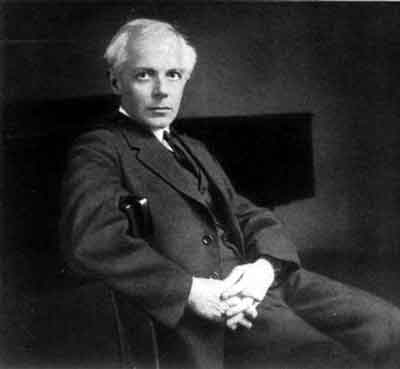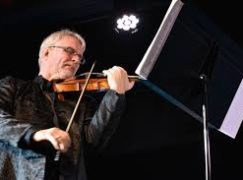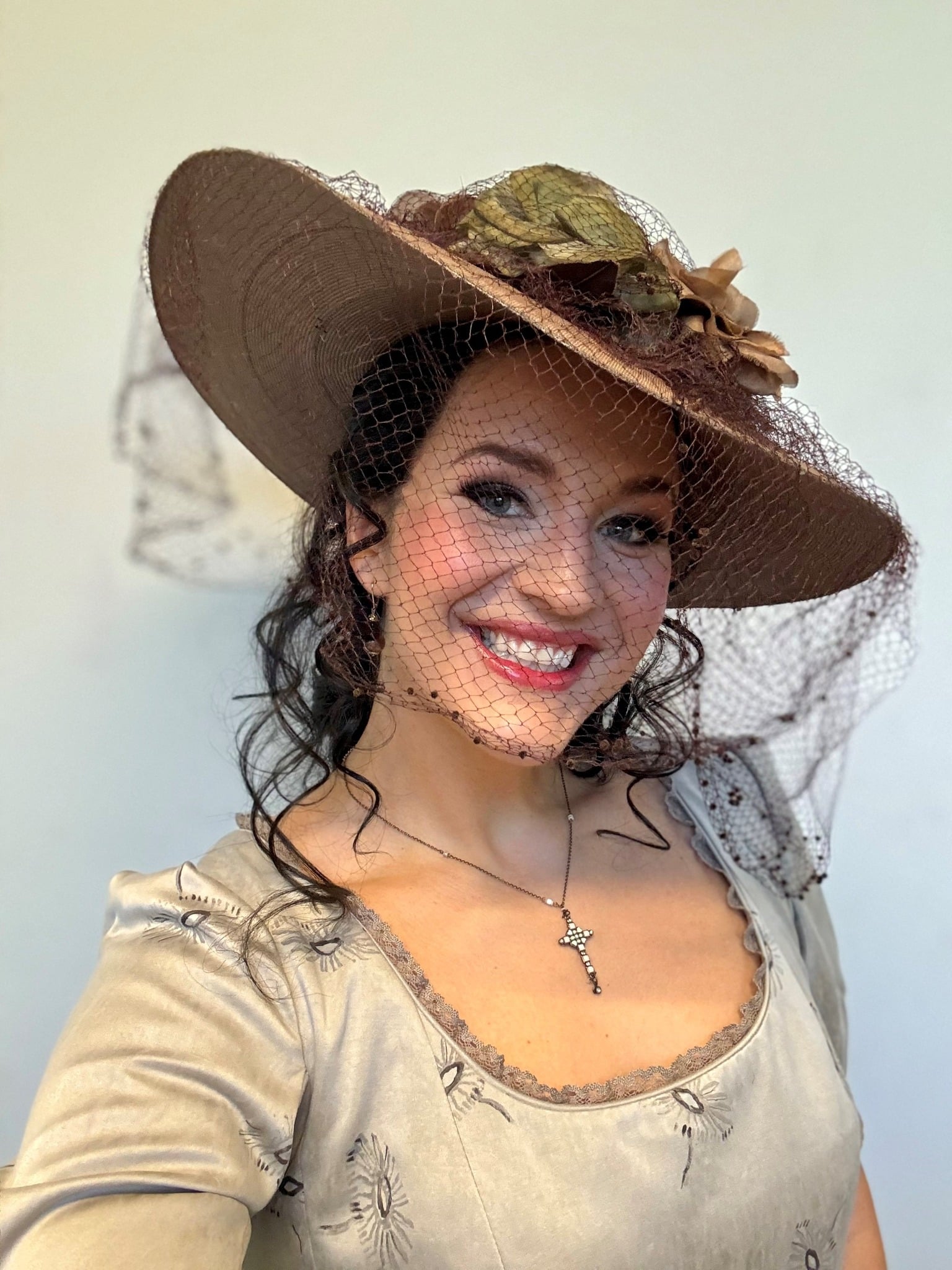Just out: Bartok’s private recordings
mainCourtesy of our musical archaeologist Mikhail Kaykov:
His Chopin is quite weird.


Courtesy of our musical archaeologist Mikhail Kaykov:
His Chopin is quite weird.

In the orchestra’s hot seat since 2001, the…

The vastly hyped film of the fading existence…

The Buffalo Philharmonic music director will join the…

Friends of Lise Davidsen are delighted to learn…

Session expired
Please log in again. The login page will open in a new tab. After logging in you can close it and return to this page.
So the Brahms is the b minor Capriccio – the second piece in the Op 76 set . What else do we have ? It’s low on detail
I can’t hear anything weird about the Chopin at all. The first section is taken rather slower than is common nowadays, but apart from that I can hear nothing unusual ( and frankly, like so many works, it gains from not being rushed in this performance )
I had see the Doctor about my weird Chopin
Good on Mr. Kaykov for unearthing this. As for the Chopin, I’d rather hear Bartok’s “wierd” take on the composer than the assembly line stuff stamped out by too many pianists today.
What’s rare and “just out”? These have been available for nearly 40 years on Hungaraton, first on LP and now on CD in a collection called “Bartok Recordings From Private Collections”. THAT’s what you should be pointing people towards…it’s a treasure trove. Hungaraton has also issued his commercially issued recordings in a 6 cd set. I have no problem with Classical piano rarities showcasing these, but wish they would give proper attribution to their sources and not claim such things as discoveries.
Indeed! These and much else have been available for decades from Hungaroton for anyone interested in such archival material.
If you go to Youtube to watch the video, all the Hungaroton attributions are properly given there.
A fascinating experience, and thank you. Of course we could wish the sound was better, but we take what we get.
When Hungaroton came out years ago with its surprisingly huge “Bartók at the Piano” package, you read much commentary about Béla Bartók’s duality: so modern a composer, so old-fashioned a pianist.
His own primary teacher was a Liszt pupil, and one hears some of this same manner and style in the surviving recordings of other Liszt pupils. Certainly Bartók’s own piano pupils (I am thinking of Lili Kraus, György Sándor) were naturally a further generation removed from the style, or at least the far reaches of it.
Yet if we imagine a young pupil of Bartók’s working their way through Mikrokosmos with him and hearing the composer play in this manner (free rubato, slightly arpeggiated chords, etc) and following the teacher’s manner — “authentic” — what would the likely critical reaction be to that? Harsh I suspect. Even sneering – “playing Bartók in the style of Paderewski!”
There are Baroque composers — I am thinking of Bach and Tartini — who could write violin music in an incredibly (and visually off-putting) subdivided manner, to the point where you ask “are we supposed to make sense of this stuff?” So the metronome comes on and you pencil in the subdivided beats. Then you hear it played by a great artist and you realize — aha! –that the visuals on the page are merely an effort to convey a desired impression of freedom and even rubato using our math-based, and thus sometimes inadequate, notation system. But that effort at trying to convey guidance and information makes those composers look like angry control freaks. All that painful-to-look-at notation, looks like anything but expressive freedom.
I think of Bach and Tartini because sometimes the violin parts of Bartók (and Enescu) have that same complexity of appearance that is such a barrier.
The Bartók piano recordings issued by Hungaroton raised in some minds the interesting and troubling question of whether Bartók should be regarded as a preferred interpreter of even his own piano music. How can he not be? And if he is a preferred interpreter, replicating so precisely and metronomically the exacting notation he placed in his violin parts is evidently profoundly not the point.
Interesting points…. the notation system has its limitations, and mainly rests on suggestions, hoped to be understood by a sensitive and musically-developed player. This is the reason that the notation of Brahms is so purposedly spare, leaving space for subjective interpretation, and Debussy’s notation so precise to ‘fix’ the spontaneity of an improvisation.
One of the most intelligent and knowledgeable things I have read here. Thank you.
“How can he not be a preferred [whatever that means] interpreter?“ Simply because the quality of performance is always limited by the performer’s mastery of the instrument, and therefore a superior player may be able to realize composer’s musical ideas (and in most outstanding cases adding some valuable ones of their own) more successfully that the composer himself (or herself).
Weird indeed… It is the typical 19C pianism: fluent and light technique, and squeezing all emotion from every note to the last drop, to make sure listeners stop thinking and indulge in their aural experience of being very musical.
It would have been nice to include a list of the tracks for those who aren’t musicolgists.
I find his Chopin reading to be incredibly poetic… I’d wish we coul hear more of it.
I have a 5 LP set entitled Bartok at the Piano issued by Hungaraton records in 1981. Is this any differerent?
Nope….That youtube channel presents “rarities” and “discoveries” that have been in plain view for decades for those paying attention. Some people are suckered in thinking these rarities were discovered by Kaykov. I WISH Kaykov would be more honest, but hey, sure why not get folks to listen. However, IMHO, Mr. Lebrecht should do the research to avoid echoing the hucksterism and exaggerated claims of rarity…. then again, he wants us to click, yes?
It is quite interesting because in another music forum Mr. Kaykov was requesting the Hungaroton release, so he for sure is aware of the source of those recording. So who gave the title “just out” for the serious of similar posts here? Kaykov or Lebrecht??
On the YouTube page, the recordings are – properly – attributed to Hungaroton.
By 1981 he still hadn’t gotten over Ein Heldenleben
I have a 5 LP set entitled Bartok at the Piano issued by Hungaraton records in 1981. Is this any different?
These recordings along with many others were issued decades ago (1981) on the occasion of Bartok’s 100th birthday. The beautiful and fully documented 5 LP set, titled “Bartok Record Archives” and encompassing all his private non-commercial recordings, was issued on Hungaroton LPX 12334-38. The entire set has been reissued on CD.
They are not “just out”.
And your comment that Bartok’s Chopin “is quite weird” is a rather dismissive statement for you to make, Norman. Bartok’s interpretation is no “weirder” than any number of Chopin recordings made by the likes of Pachmann or Godowsky, just to give two examples. It is merely played in a style which is extinct. And it is obviously played with full musical commitment and insight, given the style in which it is played.
BTW, this particular Chopin recording was made in Budapest by an amateur on Jan. 13, 1939, the year before Bartok left Europe forever. It was etched, believe it or not, on used decelith X-ray foils, the only amateur medium available in Budapest at the time.
PS to my previous post: strike the word decelith. The X-ray foils were unlabeled and had to be cut to size, greased and softened (this last softening, to be done just before use, is similar to warming wax recording blanks). The Chopin came from a 40 minute radio recital and was cut from the remote pickup of the radio broadcast.
Very individualistic, but I suspect that is the case of most music before the “homogenization” caused by modern recordings and music schools.
This is really impressive: “Among his notable students were Fritz Reiner, Sir Georg Solti, György Sándor, Ernő Balogh, and Lili Kraus.”
Try his Scarlatti. It’s astonishing.
Flambeau — Impressive student roster, yes, but everey Hungarian musician of that day studied with eifhr Dohnanyi, Kodaly, or Bartok — or all three. There was also a respected academic at the Conservatory whose name I can’t recall.
Good comments, Greg Bottini. It reminds me that Gyorgy Ligeti said his interest in music as a child was sparked by hearing Chopin on adio and records, not so different from many of us, I imagine. \Erno Daniel, another Hungarian, once played through “Mikrokosmos” for me pointing out the increasing difficulty and resemblances to Brahms.\I also thought of Kodaly and Bartok recording folk music in villages with a primitive recording device.
I heard Lili Kraus several times and enjoyed talking to her about Bartok’s “Roumanian Dances”, which she liked to play and also recorded. She was a fine player of Mozart, Beethoven, and especially Schubert dances and Laendler. Her wartime experiences in Japanese prion camps around Java make harrowing reading and the photos of her arrival in Australia.
I remember having read her report of her experiences with the then Japanese occupyers, but it was merely being arrested and questioned, and then sent away. Her version showed immeasurable naivety combined with the idea that she, as an artist, stood above the doings of simple war mongers, and I remember her representation as an immense narcissistic exaggeration of what was a really minor event without any harm done to her, and certainly inconsequential if compared with what really happened in those prison camps. It gave the impression of a diva suddenly being affected by real life – ‘fisi d’arte’.
Edgar, I think the name of the fourth respected Hungarian teacher you are thinking of is “Leó Weiner.”
That’s it, David, thanks. Leo Weiner, also a respected composer. I observed in life that, not surprisingly, the Hungarians really stick together, including a few I’ve had as friends. Stay well, and keep posting.
Over the last four decades, I have met and became quite friendly with many highly accomplished and intelligent Hungarians, but my experience with them has shown consistently that, while they are certainly, and justifiably so, proud of the achievements of their compatriots from past generations, they are nevertheless, almost without exception, harshly critical and sometimes even downright contemptuous of their Hungarian contemporaries, especially those whose expertise is in related subjects.
I was surprised to learn that Bartok arranged many short Baroque keyboard pieces for piano — nothing particularly striking that I remember, but a whole CD’s worth and, well, surprising.
Odd, John Borstlap. I don’t read Lili Kraus that way at all. If so, she paid dearly for it, first in one Japanese camp, separated from her husband, and then another whose commandant luckily was a music-lover. The photo of her in Australia after release tells a very different story.
Be that as it may, she was s delightful player and woman. I first saw her play three Mozart concertos, including No. 9 in E-flat K. 271 which I didn’t know then, with Ingolf Dahl at the outdoor Ojai Festival in California. Later, Beethoven third with I think Krips and San Francisco Symphony, and then a recital in ellerbach Hall on the U.C. campus in Berkeley. Perhaps another recital in the Veterans Auditorium. One of the best players of Schubert dances, able to yodel at the piano.
She recorded Mozart’s complete concertos and sonatas, twice each, some Haydn, Bartok’s “Roumanian Dances”,and a good “Kreutzer” with Szymon Goldberg. She lived to a great age with her daughter in the Carolinas.
I once attended a master class in my conservatory days where she taught a number of the piano students, and she came across as very stimulating and enthusiastic.
This private recording was part of an LP set and was also reissued on CD at some point
“Quite weird”? Nobody tell Norm about Saint Saens’s Beethoven then. Or literally any piano recordings pre-1930s. And yes, are we going to get a response to the fact that these supposed new discoveries were publicly released almost forty years ago but are click-baitedly being presented to us as newly discovered treasures exclusive to slipped disc?
Thanks for posting! Weird and wonderful.
M2, agreed, Hungarians have a difficult history and personality, from Magyar and Rom influences to the Austro-Hungarian empire. They gave us many violinists, pianists, conductors and composers. Even their language is said to be related only to Finnish, or vice-versa similar to Andorra whose language is unrelated to any other European tongue.
When toasted as “the Buddha of music”, Richard Strauss rejoined “I can tell you who is the Pest.”After 1958 the train to Vienna couldn’t leave Budapest until at least one defecting pianist was aboard, among them Sari Biro, Gyorgy Cziffra, Istvan Nadas, &tc.
My friend Adam Sebestyen, who like Albert Schweitzer had triple doctorates, married my childhood friend the writer Ouida Dockery Sebestyen. He and Sari Biro, whom I knew well were typical of the often-difficult Hungarian nature. Erno Daniel and his friend violinist-conductor Frederic Balazs, whom I as a sstudent knew, less so, more balanced, by leaving Hungary in early youth.
Otto von Hapsburg told this story on himself. Entering the European Parliament of which he was a member, he met a friend who asked if he’d seen the Austro-Hungarian soccer game that week-end. “No, who were they playing?”, he asked innocently, lost in the past and his name. .
Lost in the past indeed, but the story unfortunately loses in translation apparently too. In English no one would’ve said “Austro-Hungarian” about a game between Austria and Hungary. They would’ve called it “Austria-Hungary” game. If the story is true, the conversation must’ve been in some other language.
Soccer games can be culturally confusing. Once at a Parisian party I heard one guest ask another what he thought of Toulouse-Lautrec (there was a big exhibition then at the Orsay). Upon which the other pensively answered: ‘….I think it’s quite probable that Toulouse will win’.
Otto might have called it that because he’s a Hapsburg. They still own Liechtenstein, you know. But why ruin a good story that he told himself?
Maybe Otto heard what he wanted to hear– he was ove 80, and those Austrian dialects are murder … “Mua Muahta war ein’ Wienerin”. . Where are Erich Kunz and Julius Patzak when you need them? Wolfgang Holzmair can do themall right.
I think the point of Otto’s story is that he still thought of them as one country and his backyard. You’ll have to ask him. I’m just glad it wasn’t Haider He would have been across the border before you could say Fitzli-Putzli. .
The point of the story is obvious but its veracity is much less so.
Bartok’s playing in the live “Kreutzer” with Szigeti showed his affnity with Romantic music. From the 1920s on Cortot and Rubinstein showed us a virile Chopin moved from the Chopinzees’ sick-room. among whom Vladimir de Pachmann was notorious, and even he made a few good records such as the Nocturne in E minor, nd Black Keys” Etude a la Godowsky.
It is fascinating ro hear composers play: Nikolai Medtner’s “Appassionata”, Dohnanyi in Mozart’s 17th concerto, Rachmaninoff’s Grieg, Beethoven, and Schubert violin sonatas with ‘Kreisler, Schumann “Carnaval”, or big and small Chopin works; Bernstein accompanying Mahler songs, playing Schumann’s quintet or Mozart concertos,
Hearing composers perform may or may not be more or less fascinating than hearing compositions by performers. It all depends on quality of both compositions and performances.
M2, you are not easy to convince. Otto von Hapsburg’s story was reported in the press by reliable European sources. Unfortunately, he has since died, but I believe it. Do you have some reason not to?
As for performer-composers or vice-versa, or the reverse of the opposite, there is a large srchive of composer-performed registrations,: at random:
Grieg, Debussy, Ravel, Mahler, Rihard Strauss,
Scriabin, Glazunov, Medtner, Sviridov, Shchedrin, Pfitzner, Prokofiev, Shostakovich, Rachmaninoff, Bernstein, Elgar, Sarasate, Saint-Saens, Paderewski, Rosenthal, Godowsky, Khatchaturian, Babajanian, Aratunian, Bloch, Copland, Stravinsky, Gershwin, Kabalevsky, Grainger, Herrmann, Mascagni, Hanson, Sessions, Leonavallo, Casella, Tovey, Hamelin, Ronald Stevenson, Albeniz, Granados, Villa-Lobos, Lecuona, many others including more Brazilians and Russian jazz omposers.
the Russian jazz compser is Kapustin, whom Marc-Andre Hamelin has also recorded, along with two more Brazilians: Francesco Mignone and the marvelously-named Radames Gnattali, who really had a sister named Aida so we know what was going on in that family.